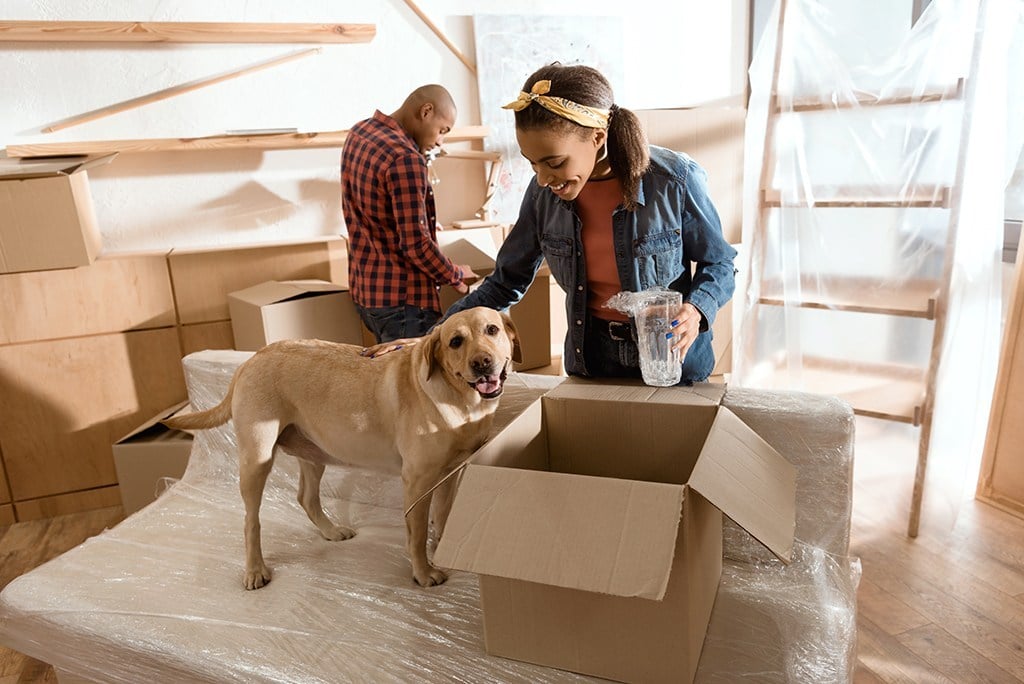For many of us, our furry, feathery, or scaly friends, aren’t just pets, they’re part of the family. While moving is stressful for us, it can be even more stressful for them because they don’t know what is going on. Here are some tips to make moving as gentle as possible on your animal loved ones.
- Schedule boarding for your moving day.
- Consider taking your pet to a kennel or trusted friend’s house a day or two before moving day and picking them up right before you are ready to depart for an out of town move or after you have unpacked in your new home in town. Having boxes scattered around and unfamiliar people going in and out can be very stressful for your pet and they may even try to flee. It will be easy for them to sneak out with doors left open and go unnoticed in all of the confusion. Be sure to schedule boarding in advance if you are using a kennel. Many kennels fill up on weekends, the time you are most likely to be moving.
- If you can’t board your pet and you don’t have a friend who can help out, arrange for your pet to stay in a closed off room that will not have any in and out foot traffic. Warn your movers, family, and children to stay out of the room and not open the door.
- Show your pet some extra love during this stressful time.
- Pets are often the last thing on your mind during a stressful move, but this is when it is most important to give them extra attention. If pets feel neglected, they may act out with bad behaviors which can add to your stress. You can take them for extra walks, set aside a few minutes to play, and give them some extra treats or special favorite foods during this time.
- Watch for signs of trouble.
- It is not uncommon for pets to refuse food and water while in a new or stressful situation. Offer them favorite foods or special treats to encourage them to eat. Monitor their water intake. If their appetite doesn’t improve or they don’t appear to be drinking water, contact a vet for more advice and treatment options.
- Keep a normal schedule as much as possible.
- When so much around them is changing, routine can be especially important. Whenever possible, be sure to fee and or walk your pet at the same time you would normally.
- Inspect your new home before you bring your pet in.
- If you can’t board your pet or leave them with a friend, keep them on a leash or in a carrier until you have inspected your new home for anything that might be harmful such as wet paint, sawdust, openings, or bare wires.
- Lay out familiar comfort items like blankets, beds, or toys.
- These familiar items they associate with home will help them realize this is their new home.
- Make sure to update their ID tags and/or microchip.
- Since you are in a new environment, it will be easier for your pet to get lost. In that unfortunate event, you want to make sure they can get back home to you.
- Go over your new yard very carefully.
- Make sure your yard is dog or cat proof. Look for harmful items or chemicals. Make sure they can’t escape through the fence or gate. Be patient with your pet as they may be confused with their new surroundings.
For outdoor cats, keep them inside for a few days and nights until they get acclimatized to their new home.


